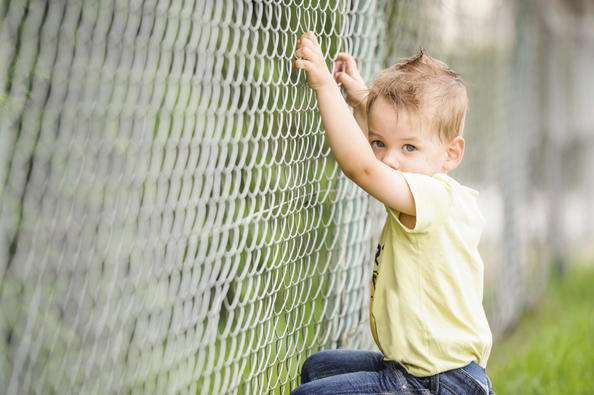Two-year-olds with poor language skills fall behind at play

While 70% of 2-year-olds with normal language development function well when playing with other children, only 11% of 2-year-olds with poor language skills manage to play with others. Children with poor language skills also have problems keeping up when playing. This causes other children to stop including them, meaning children with poor language skills are excluded from the all-important playtime. This was the finding of a new study that was presented during the Stavanger Project's annual research gathering on Wednesday 4 November in Stavanger.
"Two-year-olds with limited language skills miss out on important social experience, which is also important for language development", says PhD student Elisabeth Brekke Stangeland (pictured below). She studied the relationship between children's language, play and social skills as part of the Stavanger Project at the Reading Centre, University of Stavanger (UiS).
"Our research shows that children with language difficulties struggle socially and that this persists into secondary school. Previous studies that have been done in other countries have focussed on older children. We wanted to look at these relationships in Norwegian children in kindergarten", says Stangeland. Most Norwegian children attend a public or private barnehage—or kindergarten—from the age of 1.
She looked at the relationship between language and social skills in over 1000 children aged 2 years and 9 months. There is a major difference between the 10% of the weakest children and the rest of the children in that particular age group.
"Play requires a good grasp of language. Even children under the age of three years use language when playing and it is essential that children understand each other in the process. In role play, for example, children who do not understand everything that is being said are quickly reduced to playing minor roles. They may end up playing the dog or the baby. Other research shows that these children quickly seek the company of adults instead of the other children and that they function badly in free play. Thus they miss out on social training, social codes for playing in the kindergarten and important linguistic stimulation", says Stangeland.
Important adults
Other studies show that five-year-olds with language difficulties are more often ignored by their peers, that their peers are less responsive to what they say, that they have difficulties in entering and negotiating during play, and that they are less popular as playmates.
Stangeland and her colleagues in the Stavanger Project hope that the findings from this study will help to raise awareness among adults working with small children.
"Children of this age are definitely not aware of helping others to join in and play. Adults have an important role here. They can keep an eye on events and help the child to get involved and play. It is important that these children receive help at an early stage to get involved and play and understand linguistic and social codes in order to prevent these social difficulties becoming worse and persisting when the child starts school. Poor social skills do not suddenly occur at school age", she points out.
















